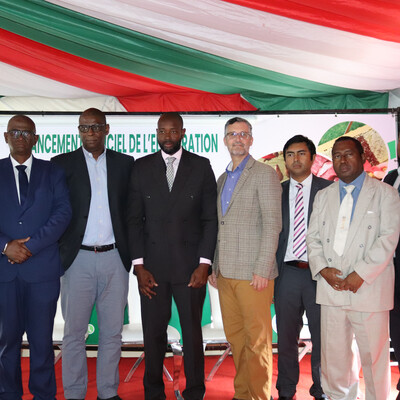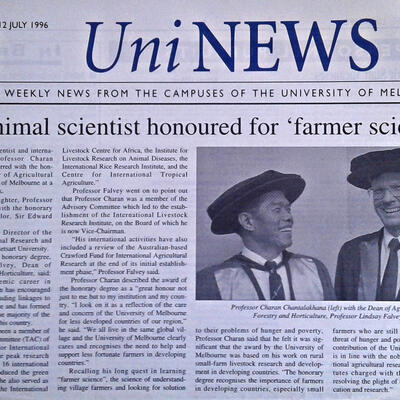
Building capacity of African researchers in genomics to play key role in boosting productivity of livestock systems
The International Livestock Research Institute (ILRI) and the Swedish University of Agricultural Sciences (SLU) recently trained African researchers working in animal science, breeding and genetics. The goal was for the researchers to apply the knowledge from the training to improve the productivity of African livestock, including dairy cattle.
On 30 Sept– 4 Oct 2019, 26 researchers from 14 sub-Saharan African countries such as Burkina Faso, Chad, Ghana, Rwanda, Senegal and Togo, took part in a week-long training on current genomic data tools, methods and trends and their application in Africa. The workshop, which was held at ILRI’s campus in Addis Ababa, Ethiopia, aimed to build their capacity in genomics so that they can ultimately move genomic tools from the laboratory to farms.
‘Our aim is to equip the researchers with the information and skills they need to apply these tools in the continent’s smallholder livestock production systems to improve the productivity of dairy cows,’ said Abdulfatai Tijjani from ILRI’s Livestock Genetics program. ‘The training provided participants with practical skills in using genomic data in the field to understand livestock population genomics and improve breeding,’ he said.
Better breeds of dairy cows, which produce more milk, for example, will enable rural farmers in Africa to produce more milk and sell the surplus to earn more income, which will improve their diets and nutrition as well as their livelihoods. This and future training sessions in genomics by SLU and ILRI aim to support a critical mass of African researchers working in the livestock sector to improve dairy farming.
The training was funded by SLU and ILRI under the genetics flagship of the CGIAR Research Program on Livestock. The training participants included young scientists from Ethiopia and Kenya, as well as 14 African partners to the Dairy Genomics Program of the Centre for Tropical Livestock Genetics and Health (CTLGH). CTLGH is an alliance of ILRI, the Roslin Institute at the University of Edinburgh and Scotland’s Rural College. The CTLGH dairy genomics program works with African institutions to help African livestock keepers, value chain actors and consumers to benefit from improved dairy cattle genetic resources
Claire Hirwa, a livestock researcher from the Rwanda Agriculture and Animal Resource Development Board (RAB) said she enjoyed the training experience and gained knowledge on the latest tools for bioinformatics which included software application of LINUX, R, UNIGENE and TASSEL. She added, ‘I hope to add the knowledge and skills gained in genomic data analysis to my research and plan to train other students and colleagues in genomic data analysis.’
Among the trainers in the workshop was bioinformatics professor Erik Bongcam-Rudloff, from SLU, who gave a lecture on bioinformatics resources for data management and next-generation sequencing technologies. ‘It is crucial to empower African researchers to analyse livestock genomics data, which can be achieved only through educational deployment of information platforms that use existing open-source software integrating bioinformatics analysis workflows,’ he said.
Olivier Hanotte, a principal scientist at ILRI, said the CTLGH livestock genetics program is focusing on ‘building in-country capacity in livestock genomics characterization and utilization.’ However, he added, ‘African institutions and scientists should take the lead in valuing the continent’s unique livestock genetic resources, which can greatly benefit Africa’s livestock producers and consumers.’
For more information on the genomics reference resource for African cattle, contact Karen Marshal, principal scientist at ILRI co-leading the CTLGH Dairy Genomics program.
Group photo of students and tutors at the livestock genomics workshop at ILRI, Ethiopia (photo credit: Erik Bongcam/SLU).


















